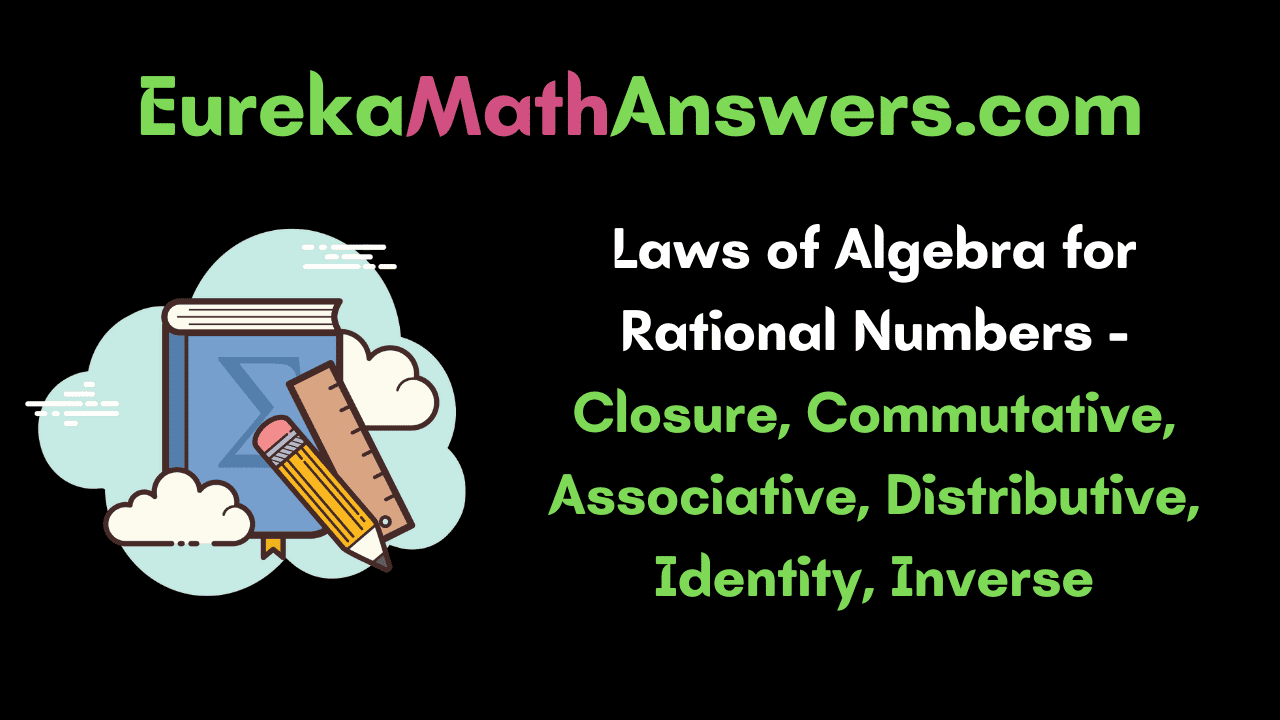Rational Numbers are the numbers that can be denoted in the form of p/q where p, q are integers and q is a non-zero number. For understanding the Rational Numbers Laws we have listed all of them explaining step by step. Check out the various general properties or laws that the rational numbers obey such as closure, commutative, associative, distributive, identity & inverse properties, etc. Go through these Algebra Laws for Rational Numbers explained one by one below and have a clear picture of the concept.
Laws of Algebra of Rational Numbers
If a ∈ Q, b ∈ Q, c ∈ Q, where Q is the set of rational numbers then
(i) a + b ∈ Q
(ii) a + b = b + a
(iii) (a + b) + c = a + (b + c)
(iv) a + (-a) = 0, -a being the negative rational of a
(v) a × b ∈ Q
(vi) a × b = b × a
(vii) a × (b × c) = (a × b) × c
(viii) a × (b + c) = a × b + a × c (Distributive law)
(ix) a × b = b × c ⟹ a = 0 or b = c (Cancellation law)
Check Related Articles:
- Rational Numbers in Terminating and Non-Terminating Decimals
- Decimal Representation of Rational Numbers
- Recurring Decimals as Rational Numbers
Properties of Rational Numbers
There are 6 different properties of rational numbers. All of them are explained below with enough examples. They are as under
Closure Property: If we perform addition, subtraction, multiplication operations on two rational numbers say x and y, the result is also a rational number. Thus, we can say that rational numbers are closed under addition, subtraction and multiplication.
Commutative Property: Addition and Multiplication of Rational Numbers are Commutative. Subtraction and Division of Rational Numbers don’t obey the Commutative Property.
Associative Property: Rational Numbers obey the Associative Property for Addition and Multiplication. If x, y, z are rational numbers then for the addition we can write as x+(y+z)=(x+y)+z. In the case of multiplication, x(yz)=(xy)z
Distributive Property: For three rational numbers a, b, c distributive property states that a x (b+c) = (a x b) + (a x c)
Identity and Inverse Properties: 0 is an additive identity and 1 is a multiplicative identity for rational numbers. For a rational number x/y, the additive inverse is -x/y, and y/x is the multiplicative inverse.
FAQs on Laws of Algebra for Rational Numbers
1. What are the different properties of rational numbers?
The different properties of rational numbers are as such
- Closure Property
- Commutative Property
- Associative Property
- Distributive Property
- Identity Property
- Inverse Property
2. Why is there no closure property for division?
The division doesn’t obey the closure property as division by zero is not defined. We can say that other than ‘0’ all numbers are closed under division.
3. What is the distributive property of rational numbers?
Distributive Property of Rational Numbers state that a x (b+c) = (a x b) + (a x c)
